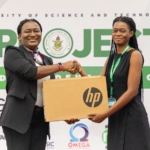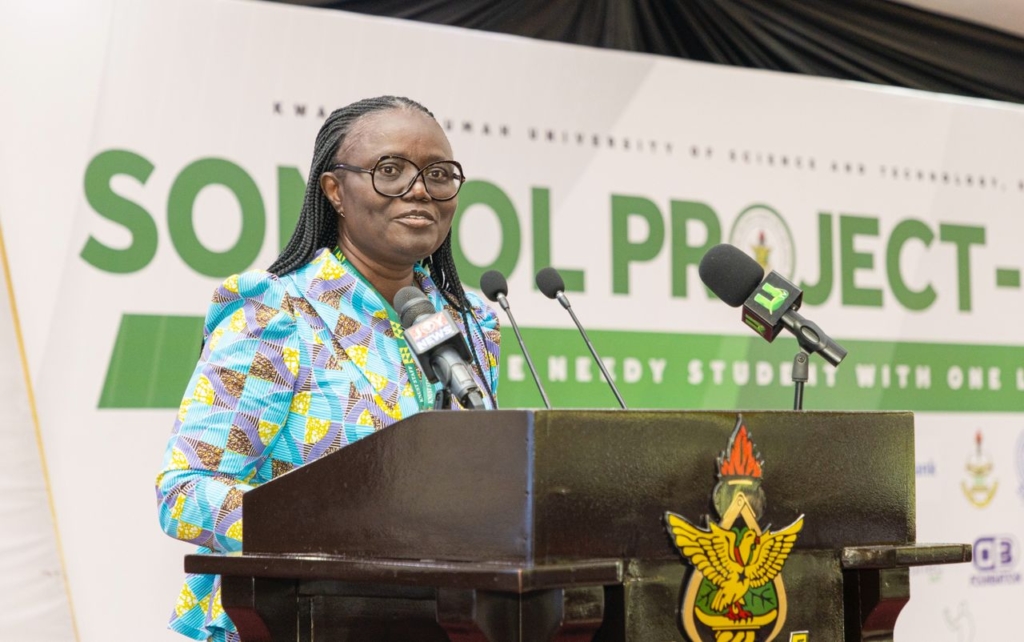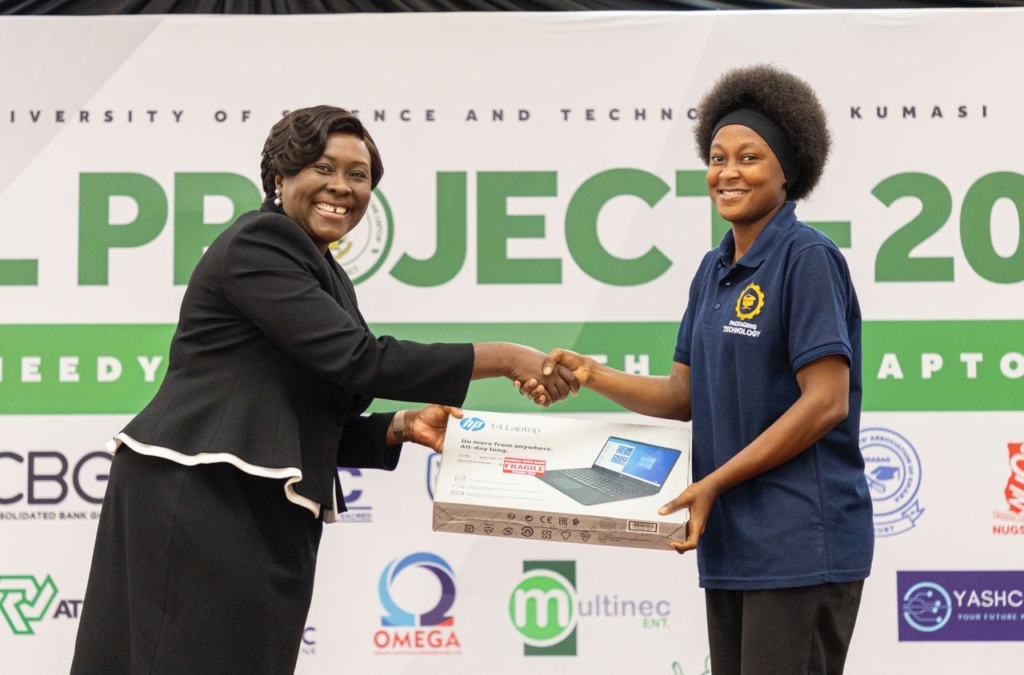
The Kwame Nkrumah University of Science and Technology (KNUST) has distributed laptops to more than 500 brilliant but needy students as part of efforts to bridge the digital divide among learners.
The Support One Needy Student with One Laptop (SONSOL) Project has, since 2021, provided over 3,300 laptops to students who demonstrate academic excellence but face financial challenges.
Speaking at the 2025 SONSOL presentation ceremony, Vice-Chancellor of KNUST, Prof Rita Akosua Dickson, said the University was committed to producing graduates who are job-ready and capable of contributing to economic transformation in Ghana, Africa, and beyond.

“In the era where Artificial Intelligence (AI) is permeating every aspect of our lives, the future would belong to graduates who can confidently navigate the digital space,” she said.
She added: “Disruptive technologies such as AI, internet of things, blockchain, additive manufacturing, and quantum science among others, demand that students are equipped with the necessary tools to actively participate in teaching learning. The world now has little room for digital illiteracy and KNUST will take this challenge seriously.”
Prof. Dickson explained that the SONSOL Project was inspired by challenges faced during the COVID-19 pandemic, when the University adopted a 70 percent in-person and 30 percent online teaching approach.
At the time, the school invested over $5 million in digital infrastructure but realised that many students lacked the tools to access online platforms.

“To ensure that no student is left behind, SONSOL was given birth to in 2020 and the University started giving out laptops in 2021. Our position remains that poverty should never be a barrier to education, and as an institution committed to an all-inclusive education, we keep our focus on that, nobody should be left behind,” she assured.
Each year, more than 4,000 students apply for laptops under the project, with beneficiaries selected based on academic performance and financial need.
The SONSOL selection committee revealed that although 1,200 students were recommended to receive laptops this year, only a little below 600 could be provided for.

They commended sponsors of the programme but appealed for more assistance from individuals, companies, and organizations to meet the demand and help students access gadgets that would enhance their education.
Prof. Dickson further urged students to make the most of the opportunity and ‘contribute meaningfully to others in need going forward in life.’